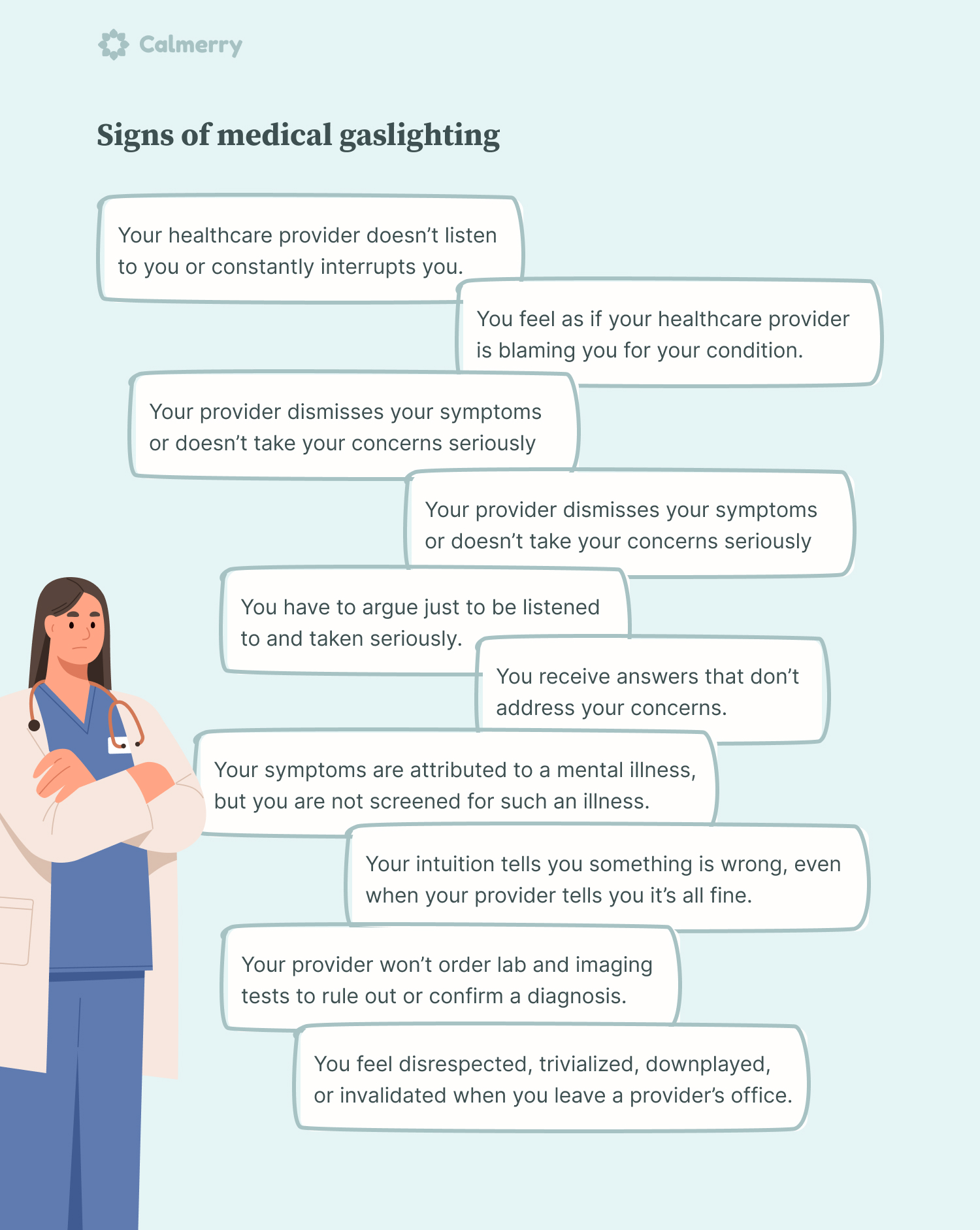Medical gaslighting is an alarming trend in the healthcare system where patients are often made to feel as though their symptoms are imaginary or exaggerated, particularly when it comes to conditions like long COVID. This psychological invalidation can leave individuals feeling dismissed, frustrated, and vulnerable, undermining trust in their doctor-patient communication. As healthcare system pressures mount, physicians increasingly confront burnout, which may unintentionally cloud their interactions with patients. The ramifications of this can be severe, leading patients to question their own realities and experiences. Addressing medical gaslighting not only calls for recognition of these harmful dynamics but also emphasizes the necessity for empathy and understanding within medical practice.
The phenomenon of medical gaslighting can be framed through various lenses, including the concepts of psychological invalidation and doctor-patient dynamics. Often referred to as a form of emotional manipulation, this issue highlights how systemic pressures within healthcare can adversely impact patient experiences and perceptions. In recent discussions among medical professionals, alternative phrases like “medical invalidation” have emerged to better capture the subtleties of these interactions, especially when physician burnout affects the quality of care. Patients facing elusive ailments may find their real concerns downplayed, leading to confusion and distress. Acknowledging these patterns is crucial for enhancing communication and fostering a therapeutic environment.
Understanding Medical Gaslighting
Medical gaslighting is a term that has gained prominence in recent discussions about healthcare, referring specifically to a situation where patients feel their concerns and symptoms are dismissed or trivialized by their healthcare providers. This phenomenon is particularly pronounced in cases involving chronic or elusive health conditions, such as long COVID or irritable bowel syndrome, where standard testing often yields no definitive results. As noted by psychologist Alexandra Fuss, many healthcare professionals may not intend to deceive; instead, they might simply be overwhelmed by the pressures of an increasingly demanding healthcare system, leading them to overlook the patient’s lived experiences.
The implications of medical gaslighting extend beyond immediate patient-provider interactions, affecting the overall trust in the healthcare system. Patients who feel invalidated are less likely to return for necessary follow-up care, which can exacerbate their conditions. This cycle not only impacts individual health outcomes but also places additional burdens on healthcare systems struggling with high rates of physician burnout. It is critical to differentiate between medical gaslighting and medical invalidation, as knowing that many clinicians do not intend to harm allows for a more compassionate response and fosters better doctor-patient communication.
Frequently Asked Questions
What is medical gaslighting and how does it relate to psychological invalidation?
Medical gaslighting is the phenomenon where patients feel dismissed or doubted by healthcare providers regarding their illnesses, often leading to psychological invalidation. This can occur when doctors underestimate the severity of a patient’s symptoms or imply that the issues are largely psychological, particularly in cases like long COVID. Understanding medical gaslighting is crucial for improving doctor-patient communication and ensuring patients feel heard and validated.
How can healthcare system pressures contribute to medical gaslighting?
Healthcare system pressures, such as high patient caseloads and extensive documentation requirements, can lead to medical gaslighting. When physicians are rushed and overworked, they may miss opportunities to engage empathetically with patients, prompting feelings of invalidation. As a result, patients with complex conditions might feel that their experiences are minimized, affecting their trust in the healthcare system.
What role does burnout in physicians play in medical gaslighting?
Burnout in physicians can significantly contribute to the incidence of medical gaslighting. Overwhelmed by high workloads and systemic pressures, doctors may struggle to provide the attention and compassion patients need. This can result in a lack of thorough patient engagement, leading to feelings of invalidation and the perception that their concerns are not being taken seriously.
In what ways can doctors improve communication to avoid medical gaslighting?
Doctors can enhance their communication by allowing ample time for each patient interaction, actively listening to concerns, and acknowledging symptoms without jumping to conclusions about their psychological nature. By fostering a collaborative approach to care, healthcare providers can reduce instances of medical gaslighting and build stronger, validating relationships with their patients.
How does medical gaslighting specifically affect patients with long COVID?
Patients with long COVID are particularly vulnerable to medical gaslighting due to the elusive nature of their symptoms, which may not appear in standard medical tests. When healthcare providers suggest these symptoms are imaginary or psychosomatic, it can lead to psychological invalidation, leaving patients feeling misunderstood and frustrated. Greater awareness and sensitivity in doctor-patient communication are vital to address these concerns.
| Aspect | Explanation |
|---|---|
| Definition | Medical gaslighting refers to patients feeling dismissed or invalidated by healthcare providers, particularly when they cannot find a diagnosis. |
| Connection to Chronic Conditions | It’s particularly prevalent in patients with chronic conditions like long COVID or irritable bowel syndrome, where causes are difficult to identify. |
| Role of Intent | Medical gaslighting often lacks intent to deceive; experts suggest the term ‘medical invalidation’ may be more appropriate. |
| Impact of Systemic Pressure | Healthcare providers face immense pressure to manage caseloads and documentation, impacting their ability to validate patient experiences. |
| Consequences for Patient Care | This pressure leads to rushed consultations, preventing meaningful patient interactions, and fostering feelings of dismissal. |
Summary
Medical gaslighting is a significant issue in healthcare today, characterized by patients feeling dismissed by providers, especially those with hard-to-detect medical conditions. This phenomenon isn’t just a result of carelessness; it’s deeply connected to systemic pressures within healthcare systems that leave professionals overwhelmed and unable to provide the necessary empathy and attention. Understanding medical gaslighting and its roots can facilitate better patient-provider relationships and foster a healthcare environment where patients feel heard and validated.
